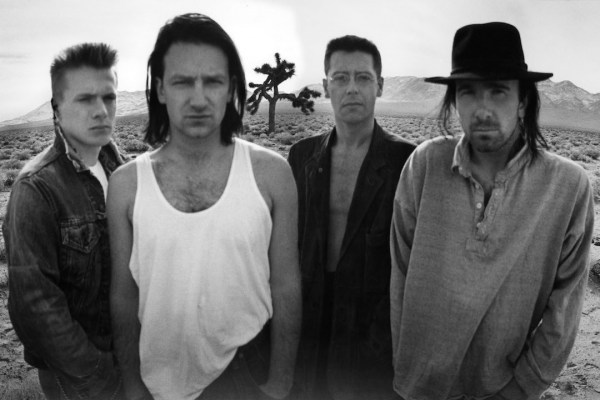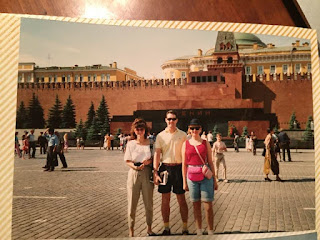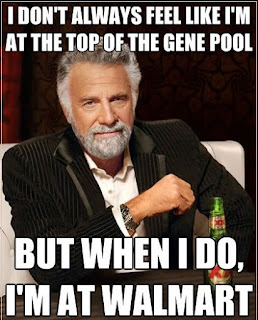Chapter 3: I Know It’s Over
There Is A Light That Never Goes Out.
How Soon Is Now?
Panic.
Bigmouth Strikes Again.
The Boy With The Thorn In His Side.
Heaven Knows I’m Miserable Now.
Girlfriend In A Coma.
Ask.
That Joke Isn’t Funny Anymore.
A chapter on my University of
Arizona “era” should carry a Smiths’ song title. But which one?
Late
eighties, early nineties. Think of me as a Great Big Inexperienced Dork With Excellent
Grades. And This Weird U2 Thing.
During college,
every song was by the Smiths or the Cure or Depeche Mode, and half of my crowd stumbled
through dorm life in t-shirts and pajama bottoms, spaghetti sauce hardened on
mom’s old pots and pans, report cards blithely testifying to a kind of
superiority that was definitely taken to heart, sexually lithe and smarmy and
suicidal.
(Thank
God for U2.)
(Thank
God for the other half of my crowd.)
It’s
sad to say that the Christian goodie-goodie emerged from her eclectic/deficient
high school experiment—man, I felt like an experiment in Christian education—as
a classic Gen X cynic: still a Christian, drawn to the existentialist crowd,
uber-melancholy, high-achiever, self-deprecating.
I
didn’t read Douglas Coupland’s Generation
X: Tales for an Accelerated Culture (1991) until I lived in Manhattan in
the nineties. But that’s where I was, with a little Christianity thrown
in—disturbingly, confusingly, contradictorily. I was bound for eccentricity,
which is not what I wanted in
college. I wanted to blend in. No, that’s
not what I really wanted. What I really wanted was to be normal.
But
Christianity sets you apart.
I
want to get college right.
I’d
ignore the college part of my story—keep it for fiction—if it didn’t say
something about politics and Christianity. I’ll not get into most of it: my two
distinct groups of friends (from
which many current best friends emerged and are still present, all strung out
on middle-age and spent aspiration), my warped love life that probably did
something to propel me into both the Arts and politics, the hazards of starting
off kids early on some kind of pseudo-intellectual life (major/unfathomable
superiority complexes, uber-fine taste in highbrow offerings of all sorts,
philosophical bankruptcy at eighteen), even a hyper-analysis of Gen X. All of
those things interest me tremendously. I love to dwell, especially, on my
diverse friends (the mentally disturbed and the mentally-adjusted) and Gen X. But
what to focus on?
The goodie-goodie from
Christian America showed up at the University of Arizona in Tucson (a fairly
hip kind of town—I wouldn’t think of it as backwoods or with any negative
cowboy-related stereotypes) immersed, not fully, in a melancholy aesthetic. Whatever that means. I guess everyone was
melancholy back then, right? Chronically depressed seems way too strong. I was
always highly functional, even insanely functional (OCD?). Did I wear black? I
wasn’t cool enough to get any look right. Did I write poetry? No. Did I even
write fiction? I was getting there, but it was not especially good or terribly dark.
Did I listen to British bands? I did, but I preferred U2. But that melancholy
aesthetic was present, brewing, behind-the-scenes . . .
This might be
worth highlighting? The incessant melancholy? What caused it? Biology? Gen X
Infusion? (Wait. I said I wouldn’t go cuckoo on Gen X stuff!) Early Artist Temperament
Stirrings? My Parents? Rock n’ Roll?
I really don’t
totally get it.
My college
experience, that of this melancholy smarty-pants Christian girl, was all about
rubbing up against sin. In secular circles: existential
angst.
(My sins had
little to do with your typical college partying; I was launched into the Honors
Student Crowd, and we didn’t do drugs. Both groups of friends. My “normal”
friends and the manic depressive set. We were like, Seriously? You think we want to waste our time on addiction? Don’t you
know we’re the movers and shakers of the American Future? We’re going to run
your companies, cure your cancer, and try your cases. We don’t have time for
any dumbass drug. Though you can pour us a drink. Pour it right here. My
sins were philosophical breeches, philosophical betrayals.)
There were a few
future alcoholics among us, though.
I
still wonder about this existentialist angst even at forty-seven.
How
did I get there?
Was
it personal failure?
A lack of genuine
conviction in my Christian beliefs?
If so, how does
that happen?
I was raised in
it, so how did I come out like a reprobate?—so well-versed in the lingo and so
susceptible to betrayal?
Was I among the
unelect? Like the whole time?
Was I proof that
one better not shove it down one’s kids’ throats?
Was there,
inherent in my religious turncoat-ism, a kind of indictment against Christian
education?
Had my parents
erred by letting me see too many R-rated movies? Should they have not let me
listen to rock n’ roll?
(I’m
sure my mom has her opinions, which I
would like to not hear right now.)
Now,
more sober-minded, more sure of my own identity, I might say that my
existentialist inklings had more to do with the emergence of an artistic
identity. I wouldn’t have said that then. I wouldn’t have had the words to
express this.
I
immediately—immediately!—didn’t fit in with the Christian kids. Do you know
what happens on campus? The gatherings, the songs, the good clean fun: Campus
Crusade for Christ, Intervarsity, the Navigators. It’s easy to find a nice
person who will drive you to church on Sundays.
I
guess Campus Crusade recently changed its name to Cru to avoid the bad vibes associated with crusade. But back then, it was a regular old crusade.
Intervarsity?
I always felt like I was forcing it.
The
Navigators were okay, another group I attempted in rote obligation. There was a
cute guy from my dorm in it, so cute. I still remember him. That perfect
physical specimen of a college boy. Objectively cute, not in that “I’ll Settle
For You” way one had to make do with in Christian circles. He eventually
started dating his female equivalent, her roommate reported to many of us that
they were overheard having sex in the shower a lot, they married, and they eventually divorced after it was said
that he hit her a few times.
I
guess, if I were to be totally honest. I would say that, though my Christian identity
is more secure now, I remain wary of such Christian groups. I remain wary of
Christian gatherings on campus. I remain wary of parental hovering. Now, as a
mom, I’m sure I’m all anxiety-prone about the worldly influence on my kids, as
well. And I’m pretty overprotective and rather conservative in my child-rearing
ways. But I can’t help but think that my college life had a lot to do with
spiritual backlash. That my philosophical betrayals were connected to church
failures.
So,
yeah. So much depends upon . . . U2. The
Joshua Tree, 1987. The official story, told ad nausem (and even published elsewhere), is that I, young Duranie,
was handed a cassette in the mid-eighties by the Church Hot Guy (I get to say
this now! We’re both over the hill! He’s a bit over-er than I!). The story has most likely become a tad convoluted by
now, but do we really care?
Laura
Cerny and I were all about pop rock pretty boys. And if you were around back
then, you know there was no group prettier than Duran Duran. Simon Le Bon with
his Elvis-chiseled face and sunset yacht cruises, his New Romantic lyrics and
nonsense wordplay. John Taylor, oh so perpetually eligible, my favorite even
though I have my doubts he really played the bass and he couldn’t sing worth
shit as evidenced on the 9½ Weeks
soundtrack (Mickey Rourke, another
story, another saga). Nick Rhodes,
that strange early show of hetero-androgeny: his rouged cheekbones sharp, his
eyelids glittery, his hair oft orange—somehow glamorous, somehow the bona fide
artist there, still enigmatic to me today if I were to admit it aloud. Roger
Taylor, bulky, quiet, respectable? Not much to say about Roger other than to
say his quietude was affective on a teenage girl in search of a show of depth.
And Andy Taylor! Poor Andy Taylor! Who really cared about Andy Taylor?
I
had multiple posters, of course, and I remember—quite honestly—getting tucked
in at night by my dad (still tucked in at night!), justifying their artistic
existence. My dad was shaking his head. Men in make-up!
“I
know, but you gotta read their lyrics . . .” I was always the one to suggest
great writing. “These lyrics are Art!” Where
did I get this bullshit?
“If
you say so,” he said.
So
when Barry, code-name among my church friends The Filling In My Donut (I know! I can’t even believe it either,
though I promise you that it was entirely innocent!), maybe about five years
older than I and cooler and churchy and a rock n’ roll aficionado, flippantly handed
me an old cassette—the way older men flippantly handed teenage girls cassettes
back then—and said, “Here. To get you off that pabulum,” I took the cassette—not
skeptically since I had a crush on him but not really expecting to abandon my
claims on the artistic integrity of Duran Duran.
I
didn’t even need to look up the word pabulum,
since I was one of the smart kids.
The
cassette: War by U2.
And
the rest, as they say, is legend? History? What?
I
don’t know. It was a big deal. I’ve written about this many times over the
years, and it all starts to sound pretty silly after a while. Apparently, the
cassette gift was the equivalent of getting hit in the head (Thank you, Barry!) and my rock n’ roll
adolescence was officially over. Right then. Right there.
It
was not just a phase.
This
is no lie: my father rejoiced.
Suddenly,
I seemed to be after musical integrity. Was I? I don’t remember.
I
know I felt a little proud of myself for being beyond the pretty boy thang.
Though I wanted to marry Bono.
What
was it? It was this: the unequivocally unique combo of real Christianity with
real rock n’ roll with real instruments and no insipid lyrics and this brand
new political passion I thought about before but maybe not so grandly.
I
was, like, “Wha?????”
I
said hit on the head? These also
worked: hit by a truck, slammed against a
wall.
See,
I told you it starts to sound silly. It was just that my own artistic and
religious and political eccentricities were suddenly validated. I could be an
artist, a Christian, a political something-or-other!
And
that was that.
I
entered college as a political science major. Because of U2. Really!
By
the end of the decade, I’d be crazily associated with U2 by pretty much
everyone because of my obsessed fan status.
I
wrote them off a couple times. I jumped back on the bandwagon a couple times. I
did some Amnesty International candlelight vigils. I acquired U2 friends, U2
memorabilia, U2 concert experiences, quite a bit of absurd information, a real
sense of political volition, a Christian philosophy on Art, and an attachment
to Ireland though I never really liked James Joyce all that much. I eventually
left politics, and that worked too because my unorthodox aesthetics which made
Christians uncomfortable made sense in the U2 paradigm in which Bono smoked,
cussed, and sang Gospel music.
While
the Smiths get the chapter title, it could rightfully belong to U2 as well. But
maybe it illustrates the crazy dichotomy of my young life. A good girl, a bad
girl. A Christian, a pagan. Globally-minded, Christian-scoped. Part of the
existentialist angst set, part of the mentally stable crowd.
I
don’t think I can actually do the U2 thing justice. I start to sound really pathetic.
I can only say that it was pivotal and transformative and a little weird. At
first, it was teeny-bopper transformative: that mindless, lusty pin-up
preoccupation was threatened permanently. Then, I was given this highly
imperfect but entirely authentic example of Christians, spiritual expats, at
large on a damaged planet. Next, I heard a political voice—still Christianized
but not like other Christians: compassionate (!), not otherworldly, not
dismissive of worldly anguish, a big emphasis on race which was my little area
of “expertise.” Finally, there were Christian Artists here who didn’t do dumb,
second-rate, totally inauthentic, fake art.
This last thing
was subtle; I don’t think I understood it myself very well. I knew I had these
writerly aspirations but they seemed pipe-dreamish. My plan was a career in
politics. Writing would be a side thing. But U2 was intrinsically important to
my own bubbling identity. I knew I hated those Campus Crusade songs. Why? I
knew I felt ill-at-ease with the happy façade of the Christian community. Why
did it make more sense to me to sing “Sunday Bloody Sunday”?
Well, let’s hold
back a little. I’m no longer a kid. I don’t want to marry Bono at anymore. I
feel, strangely, familial about him, though. Like when he does something
stupid, I’m, like, “Ewww, bro . . .” I’m highly forgiving of U2’s mistakes.
And Barry played
guitar at my wedding!
So
I guess U2 really does get their own chapter . . .
Silly!




Comments
Post a Comment